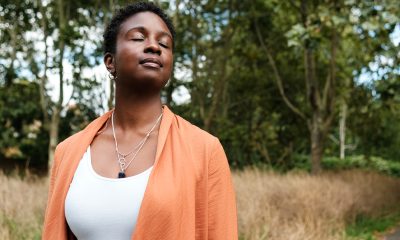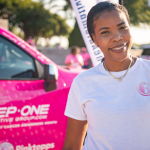Health
Task Force: Mammograms in 40s a Choice, but Don’t Skip at 50

In this May 6, 2010 file photo, a radiologist uses a magnifying glass to check mammograms for breast cancer in Los Angeles. (AP Photo/Damian Dovarganes)
LAURAN NEERGAARD, AP Medical Writer
WASHINGTON (AP) — Women should get a mammogram every two years starting at age 50 — and while routine screening brings little benefit in the 40s, beginning it that early should be a personal choice, a government task force said Monday.
Also, there’s not enough evidence to tell if new 3-D mammograms are the best option for routine screening, or if women with dense breasts need extra testing to find hidden tumors, the U.S. Preventive Services Task Force concluded.
The draft advice issued Monday is largely a rewording of the task force’s controversial 2009 recommendation that drew protests for questioning the usefulness of mammograms in the 40s. The American Cancer Society has long recommended annual mammograms starting at age 40 and while insurance usually pays for them, experts feared the dueling guidelines would confuse the public.
In reviewing its recommendation this time around, the government advisory panel is stressing that 40-somethings need to weigh the pros and cons of screening with their doctors.
Mammograms clearly can help prevent deaths but they come with trade-offs: anxiety-provoking false alarms, unneeded biopsies, and overdiagnosis, detection of tumors that never would have threatened a woman’s life.
“Screening is most beneficial for women ages 50 to 74,” said task force past chairman Dr. Michael LeFevre of the University of Missouri.
Compared with biennial mammograms for average-risk women, starting at age 40 instead of 50 could prevent one additional death but lead to 576 more false alarms for every 1,000 women screened, the report calculated. Age aside, the report estimated nearly 1 in 5 women whose tumor was detected by a screening mammogram may be overdiagnosed.
On the other hand, women at increased risk because their mother or sister had breast cancer may benefit more from mammograms than the average 40-year-old, LeFevre added.
Urging that kind of personalized discussion is an important clarification, said Dr. Richard Wender of the American Cancer Society, which had sharply criticized the task force’s 2009 recommendation. The American Cancer Society currently is updating its own mammography guidelines, due out later this year, to include the latest evidence on those age questions.
“Mammography is the most effective way to reduce the likelihood of being diagnosed with advanced breast cancer, and avoiding a premature cancer death,” Wender said.
Monday’s task force recommendation is a draft open for public comment through May 18, at www.screeningforbreastcancer.org. It also recommends:
—Women should undergo mammography every two years between 50 and 74, but more research is needed on whether to continue screening women 75 and older.
—About 40 percent of women have breasts so dense that it’s more difficult for mammograms to spot cancer, and they’re at higher risk of developing tumors, too. Laws in 22 states require that women be told if mammograms show dense breasts, and some suggest they consider extra testing. The task force said more research is needed to tell if adding tests such as 3-D mammograms or ultrasound exams would improve women’s outcomes.
—More research also is needed to tell if newer 3-D mammograms should be used for regular breast cancer screening. The task force said it’s not clear if 3-D mammograms improve survival or quality of life, or might worsen overdiagnosis.
Copyright 2015 The Associated Press. All rights reserved. This material may not be published, broadcast, rewritten or redistributed.
Activism
2024 in Review: Seven Questions for Frontline Doulas
California Black Media (CBM) spoke with Frontline Doulas’ co-founder Khefri Riley. She reflected on Frontline’s accomplishments this year and the organization’s goals moving forward.
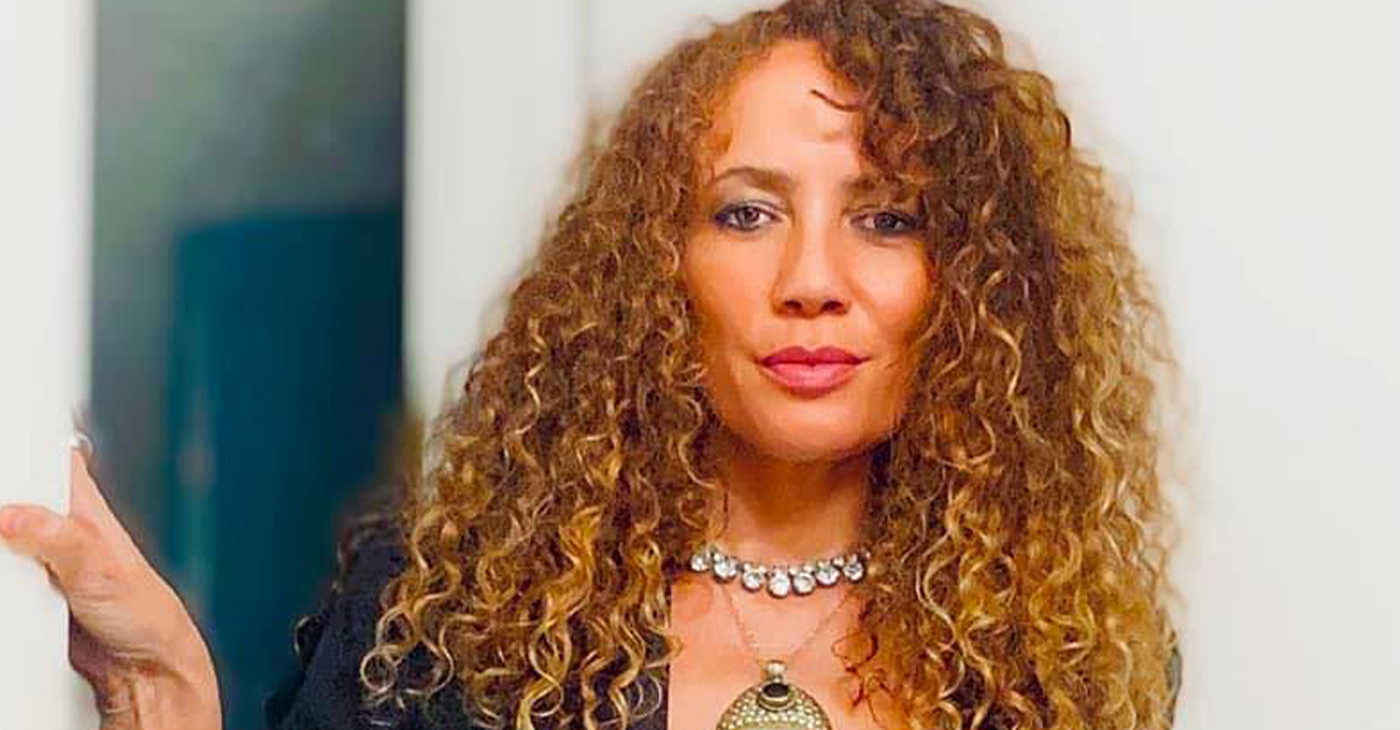
By Edward Henderson, California Black Media
Frontline Doulas provides African American families non-medical professional perinatal services at no cost.
This includes physical, emotional, informational, psychosocial and advocacy support during the pregnancy, childbirth and postpartum period. Women of all ages — with all forms of insurance — are accepted and encouraged to apply for services.
California Black Media (CBM) spoke with co-founder Khefri Riley. She reflected on Frontline’s accomplishments this year and the organization’s goals moving forward.
Responses have been edited for clarity and length.
Looking back at 2024, what stands out to you as your most important achievement and why?
In 2024, we are humbled to have been awarded the contract for the Los Angeles County Medical Doula Hub, which means that we are charged with creating a hub of connectivity and support for generating training and helping to create the new doula workforce for the medical doula benefit that went live in California on Jan. 1, 2023.
How did your leadership and investments contribute to improving the lives of Black Californians?
We believe that the revolution begins in the womb. What we mean by that is we have the potential and the ability to create intentional generational healing from the moment before a child was conceived, when a child was conceived, during this gestational time, and when a child is born.
And there’s a traditional saying in Indigenous communities that what we do now affects future generations going forward. So, the work that we do with birthing families, in particular Black birthing families, is to create powerful and healthy outcomes for the new generation so that we don’t have to replicate pain, fear, discrimination, or racism.
What frustrated you the most over the last year?
Working in reproductive justice often creates a heavy burden on the organization and the caregivers who deliver the services most needed to the communities. So, oftentimes, we’re advocating for those whose voices are silenced and erased, and you really have to be a warrior to stand strong and firm.
What inspired you the most over the last year?
My great-grandmother. My father was his grandmother’s midwife assistant when he was a young boy. I grew up with their medicine stories — the ways that they healed the community and were present to the community, even amidst Jim Crow.
What is one lesson you learned in 2024 that will inform your decision-making next year?
I find that you have to reach for your highest vision, and you have to stand firm in your value. You have to raise your voice, speak up and demand, and know your intrinsic value.
In a word, what is the biggest challenge Black Californians face?
Amplification. We cannot allow our voices to be silent.
What is the goal you want to achieve most in 2025?
I really would like to see a reduction in infant mortality and maternal mortality within our communities and witness this new birth worker force be supported and integrated into systems. So, that way, we fulfill our goal of healthy, unlimited birth in the Black community and indeed in all birthing communities in Los Angeles and California.
Activism
A Student-Run Group Provides Critical Support Services to Underserved Residents
Those visiting The Suitcase Clinic can get legal advice, sign up for food assistance, receive housing resources, get medical help, or enjoy a hot, fresh meal. They can also get haircuts and foot washes from the student volunteers. Nilo Golchini, executive director of the clinic, said one of the goals for most of the students working there is helping bridge the gap of trust that exists between many unhoused people and the healthcare and social welfare systems.
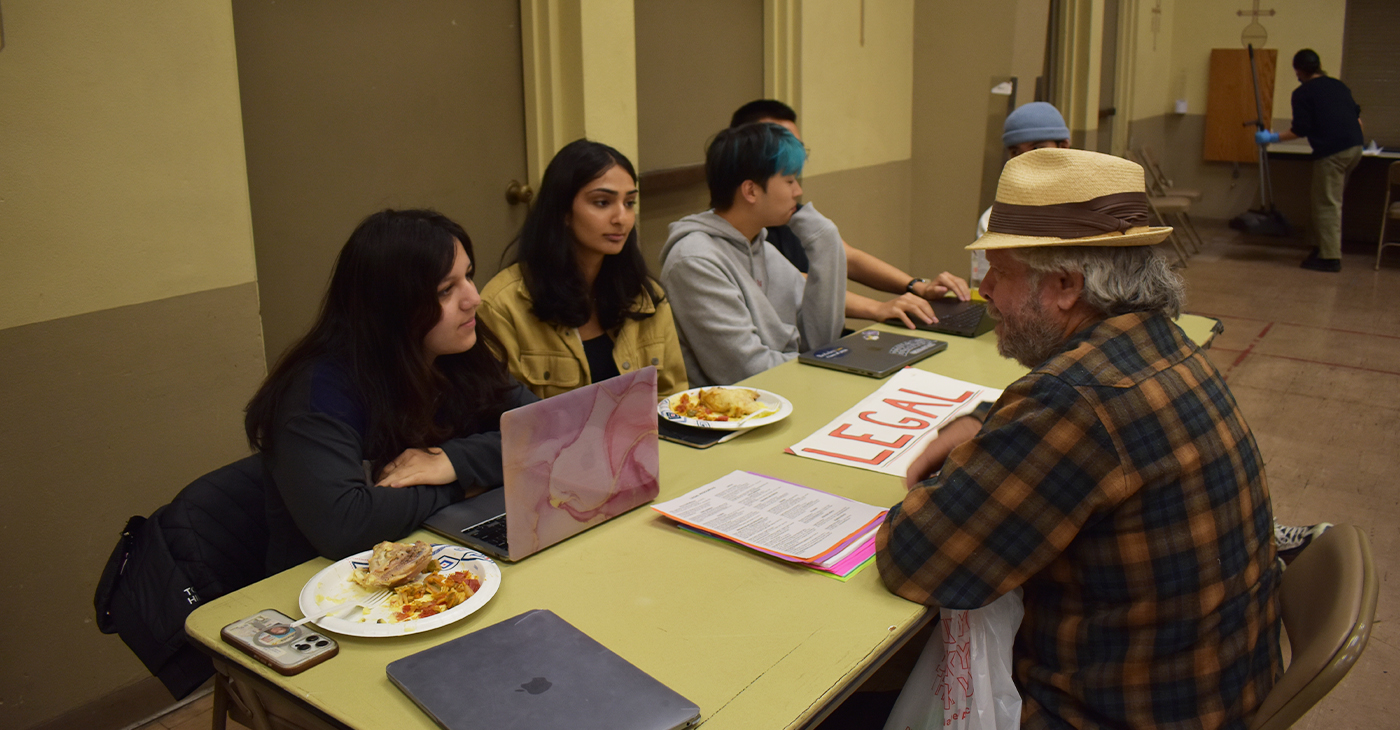
Part One
By Magaly Muñoz
Every Tuesday evening, the dining hall of First Presbyterian Church fills up with dozens of people eating, laughing and moving from table to table, receiving much-needed services from UC Berkeley students – just a few blocks away from the university’s campus.
Individuals seeking support services can be found in this multi-stationed room on the south end of the church talking to law students, student case managers, or receiving medical attention in a corner by healthcare professionals.
This weekly event is hosted by Cal students through a volunteer-run program called The Suitcase Clinic.
The clinic, founded in 1989, was intended to offer free resources to underserved communities in Berkeley and surrounding cities. The majority of the clinic’s clientele are unhoused or low-income people looking for extra support.
Those visiting the clinic can get legal advice, sign up for food assistance, receive housing resources, get medical help, or enjoy a hot, fresh meal. They can also get haircuts and foot washes from the student volunteers.
Nilo Golchini, executive director of the clinic, said one of the goals for most of the students working there is helping bridge the gap of trust that exists between many unhoused people and the healthcare and social welfare systems.
During their tenure in the program, many of the students say they become strong advocates for homelessness rights.

Visitors of the Suitcase Clinic can receive haircuts and foot washing by student volunteers every Tuesday evening. Photo by Magaly Muñoz.
“We’re also standing in solidarity with them. So, it’s not saying, ‘I’m going to help you, but I’m also going to stand with you,’” Golchini said.
Student volunteers get extensive training prior to working directly with clients. Those interested have to take a semester-long class to become versed in areas such as outreach, intersectionality, how to interact with unhoused people, how to sign people up for social services. and more.
Volunteers then get to pick from three different clinics: General, Women’s, or Youth and LGBTQ+.
The General Clinic is the most popular among visiting residents, while Women’s and Youth/LQBTQ+ have more specialized services for attendees.
The Women’s Clinic has many of the similar services to General, but also includes nail painting, childcare, and massages.
The Youth and LGBTQ+ Clinic offers a safe space for young people navigating living on the streets, with services that include housing referrals, wellness and recreation classes and employment resources.
Golchini explained that it’s important for them to keep these clinics separate because the different demographics experience poverty and homelessness differently than those who visit the General Clinic.

Suitcase Clinic student workers posing for a photo with a frequent clinic attendee. The Clinic is open to Berkeley unhoused and low-income residents who need medical or legal service, or a hot meal. Photo by Magaly Muñoz.
“We’re able to provide spaces where people can come in and feel safe and not feel like they’re constantly worried that something’s going to happen to them,” she said.
An outreach team also visits encampments every other Saturday in the Berkeley area to provide hygiene kits and encourage people to visit the in-person clinic, if possible.
However, Golchini said engagement has been low for some time now due to a recent decision by the U.S. Supreme Court that allows cities to ban and cite people for sleeping on the streets.
She said a lot of their clientele got displaced to other cities over time, making it difficult to stay in contact with the services the Clinic was providing for them.
But that hasn’t slowed down the students at the Clinic, if anything, it has pushed them to do more for the community they serve.
Activism
Post News Group Hosts Second Virtual Town Hall on Racism
“While our society tends to rebrand over the decades, we find hate as the new word, broadening its arch of issues in society,” said show host and Post News Group Global Features Journalist Carla Thomas. “However, the very first form of hate, which is racism, built this country.”
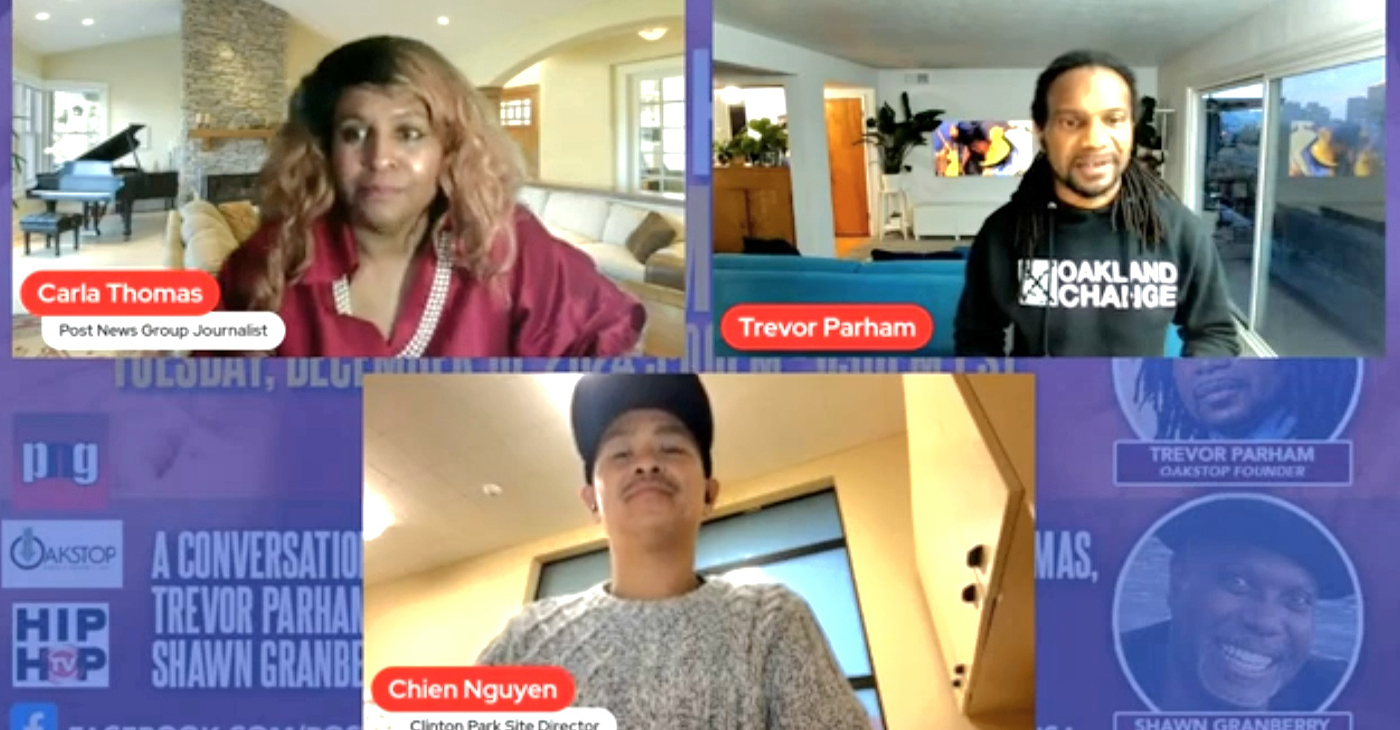
By Post News Group
Post News Group Global Features Journalist Carla Thomas recently hosted a second Virtual Town Hall on Racism, with guests including community builders Trevor Parham of Oakstop and Chien Nguyen of Oakland Trybe.
Thomas opened the town hall by paying homage to the ancestral losses of the African diaspora and to the Indigenous tribes, the enslaved, the freed, and the trailblazers of the Civil Rights Movement, Black Lives Matter Movement, and those more recently victimized by police brutality.
After thanking Bay Area non-profits for their work, Thomas led a thoughtful discussion on the importance of acknowledging racism as the first form of hate that built America.
“While our society tends to rebrand over the decades, we find hate as the new word, broadening its arch of issues in society,” she said. “However, the very first form of hate, which is racism, built this country,” she said.
“That act of othering, creating a narrative that made African people, indigenous people, and ultimately melanated people, labeled as less than human justified the colonizers act of subjugating our ancestors to inhumane, incomprehensible treatment for over 400 years,” said Thomas.
Parham of Oakstop, located at 1721 Broadway, explained that Nazi Germany patterned its mistreatment and extinction of Jews in the Holocaust after chattel slavery in America and the Jim Crow apartheid system that followed it.
“Nazi Germany found America’s treatment of Blacks so inhumane and denigrating that they (decided) it would actually be the perfect ingredient to undermine another group of people,” said Parham. “So, they essentially borrowed from what Americans did to Black people.”
Thomas pivoted the discussion to the limitations placed on Black America’s generational wealth through policies of red-lining, redevelopment, and title deeds to this day, based on the idea that no Black or indigenous person is allowed to purchase property or land.
“For this reason, there continue to be impoverished Black communities throughout the nation,” she said.
“The structures of racism from red-lining to lack of access to capital continue to restrict Black (people) in America; this structural racism kind of finishes you before you even start,” added Parham. “The lack of generational wealth has left our communities at a disadvantage because with generational wealth we’d have the resources to police our own communities and build further.”
Nguyen, Clinton Park site director for Oakland Trybe, spoke about his parents’ journey as immigrants from Vietnam, the challenges of being teased in school, and how his troubled brother was murdered.
Nguyen has turned his personal tragedies into triumph, pivoting from a career as an eight-year business owner in the Little Saigon community of East Oakland, to now a non-profit leader transforming and reclaiming the community’s Clinton Park at International Boulevard and Sixth Street..
“A park represents community, and between the pandemic, illegal activities, and homelessness, the park needed to be re-established, and we now offer programming for the youth and extended community,” he said.
“Between Oakstop’s business model of purchasing commercial properties and transforming them into beautiful spaces for community ownership, business space, and special event hubs, and Oakland Trybe’s ability to transform public spaces central to a community and empower our communities, we have solutions,” Thomas said.
Throughout the conversation, Parham referred to a press conference hosted at Oakstop in August where NBA icons Jason Kidd and Jaylen Brown pledged to raise $5 billion for Black businesses in the nation.
“Inspired by Black Wall Street, Jaylen began with Boston and created the Boston Xchange because he became aware of a statistic noting that white households in Boston average $250,000 and Black households averaged a mere $8 in wealth,” Parham said.
In Oakland, he established the Oakland Xchange to expand the movement right at Oakstop, he said.
Thomas encouraged viewers to connect with her guests and tap into the dozens of organizations making a change. “I encourage you to join your chambers of commerce, your community-based organizations, non-profits, and churches to uplift and rebuild the community,” she said.
Thomas also suggested that the NAACP as a great start. “The Oakland chapter’s resolution developed around racism was adopted by the national NAACP, and at the Afrotech Conference, national NAACP leader Derrick Johnson announced a $200 million fund to support Black funders.”
Thomas informed viewers of the California vs. Hate, initiative, a non-emergency hate incident and hate-crime reporting system to support individuals and communities targeted for hate.
“Your reports inform the state of where to designate resources and extra support,” said Thomas.
For more information, visit PostNewsGroup.com, CAvsHATE.ORG or call 1-833-8-NO-HATE.
-

 California Black Media4 weeks ago
California Black Media4 weeks agoCalifornia to Offer $43.7 Million in Federal Grants to Combat Hate Crimes
-

 Black History4 weeks ago
Black History4 weeks agoEmeline King: A Trailblazer in the Automotive Industry
-

 California Black Media4 weeks ago
California Black Media4 weeks agoGov. Newsom Goes to Washington to Advocate for California Priorities
-

 California Black Media4 weeks ago
California Black Media4 weeks agoCalifornia Department of Aging Offers Free Resources for Family Caregivers in November
-

 Activism3 weeks ago
Activism3 weeks agoOakland Post: Week of November 27 – December 3, 2024
-

 Activism4 weeks ago
Activism4 weeks agoOCCUR Hosts “Faith Forward” Conference in Oakland
-

 Activism4 weeks ago
Activism4 weeks agoRichmond Seniors Still Having a Ball After 25 Years
-

 Activism2 weeks ago
Activism2 weeks agoButler, Lee Celebrate Passage of Bill to Honor Congresswoman Shirley Chisholm with Congressional Gold Medal






